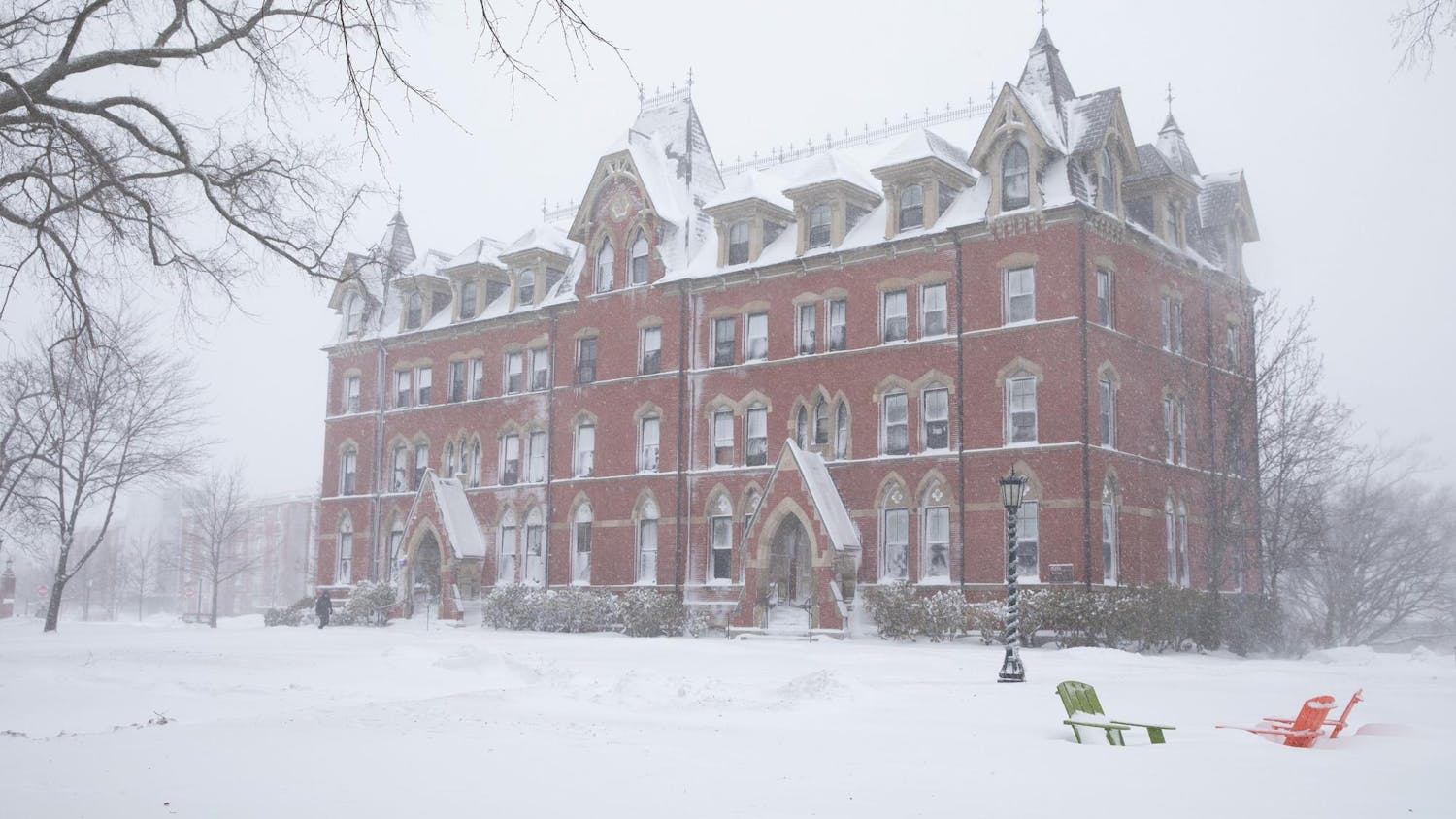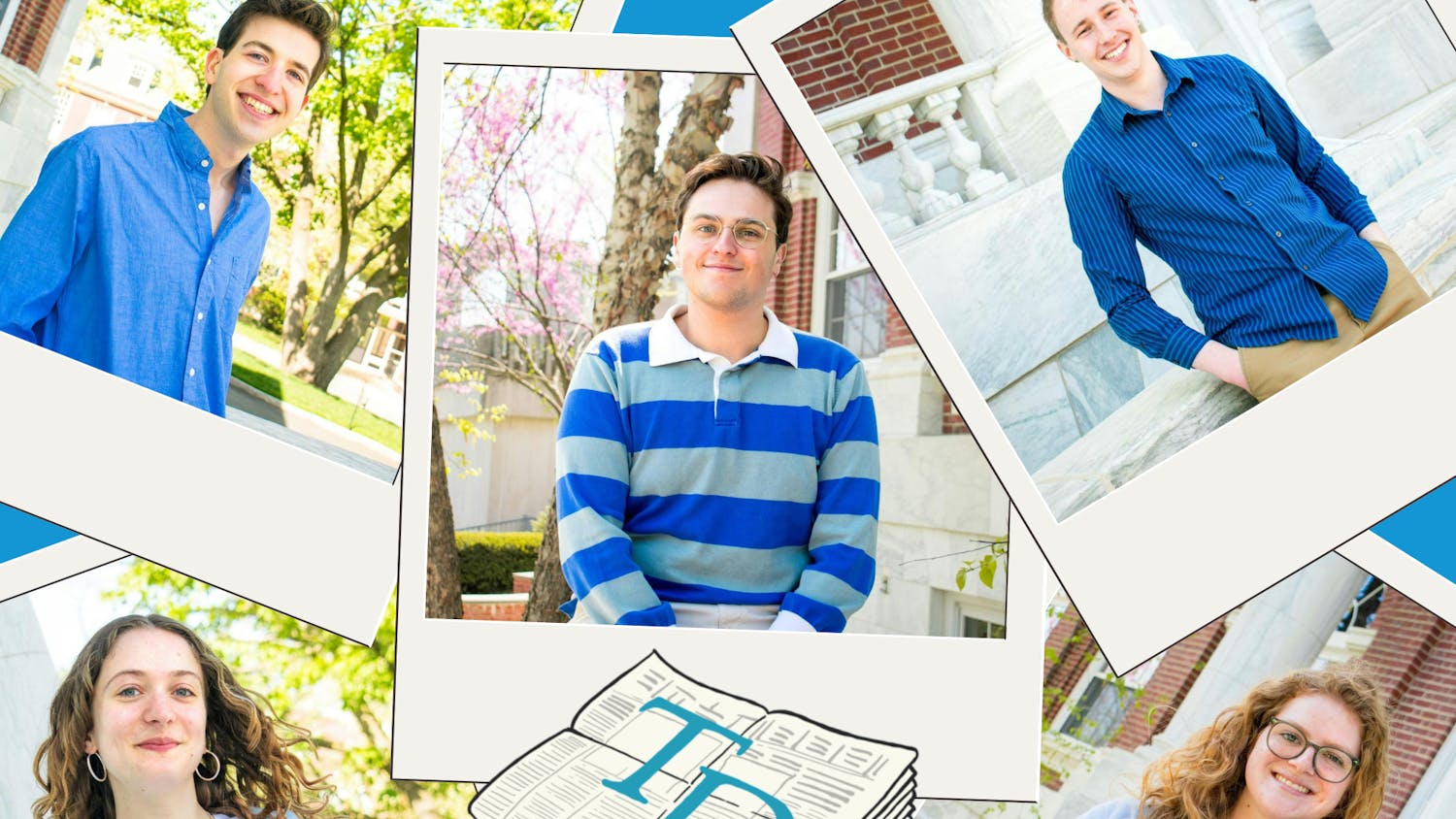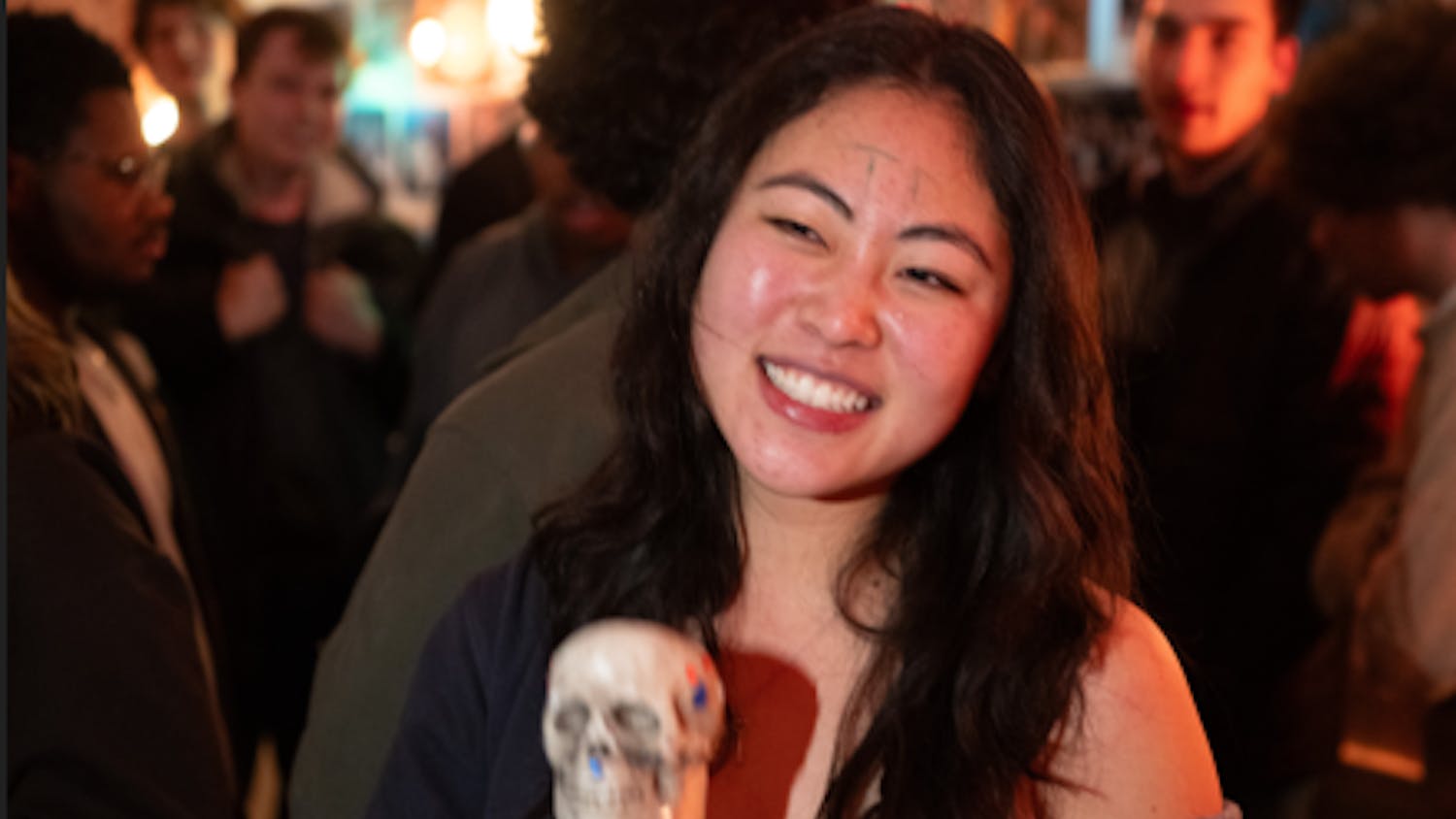Tufts' Department of International Literary and Culture Studies (ILCS) hosted its first Language Fair in Alumnae Lounge yesterday, attracting nearly 200 students to a career-oriented event that featured Tufts administrators, employers and educators from around the Boston area.
The event was designed to show students that second languages can be valuable career tools by putting them in direct contact with employers interested in multilingual applicants, according to multiple department professors who attended at the event. Representatives of Amazon, the Federal Bureau of Investigation (FBI) and the German and Japanese Consulates General in Boston were among the companies and organizations that set up tables in the Lounge.
Hedda Harari-Spencer,senior lecturer and Hebrew language coordinator, helped organize the fair. Harari-Spencer said that International Literary and Cultural Studies professors reached out to industry contacts to set up the event. She added that organizing the fair was a joint effort of the faculty; the department houses nine majors and two graduate programs.
"We talked among us and each program, with their connections, brought people that they thought would be helpful for the fair," she said. "It could never have happened without the close collaboration of faculty members and administrators within our department."
Harari-Spencer said that the event was born out of a desire to encourage Tufts students to study six semesters of language. Tufts undergraduates are required to complete six semesters of language study to graduate, but may opt to take three semesters of culture studies in the later half.
"Students have the tendency after the third semester to drop the language," she said. "By doing this fair a few weeks before they sign up for spring courses, they’re encouraged to continue on. If they come to the fair and they see career opportunities, internship opportunities, they’re more likely to understand the value of this kind of knowledge."
Mingquan Wang, a senior lecturer and the Chinese language coordinator, said that language study can help students have more successful global interactions.
"When you have the language skills and you are proficient in the language and the culture, you can communicate better with the people you’re dealing with," he said.
Wong also noted that companies seek out multilingual students.
"There are more and more companies that will employ people with a certain skill, with a certain language," he said.
Employers at the Language Fair said they were interested in finding students with a linguistic edge. John Martel, an Amazon recruiter who was at the fair, said Amazon needs employees proficient in languages other than English because its customers hail from around the globe.
"[Amazon is] a global company," he said. "For all of our technologies and for our website we want to have a fluid experience no matter where you’re coming from."
The fair also had a strong showing from Tufts' student support network. There were tables for The Office of Programs Abroad, the Career Center and the Office of Scholar Development. The Office of Scholar Development, in particular, helps students find "money or glory" in the form of academic awards including the Critical Language Scholarship (CLS), said Anne Moore, a program specialist in the office.
Moore noted that the CLS, a U.S. Department of State program, pays for students' participation in language immersion programs around the word.
"It opens up a ton of opportunities post graduate if you speak another language," she said.
Jonathan Sanford, the assistant director of employer relations at the Career Center, said that the Language Fair was a welcome addition to Tufts' slate of career-oriented events. Sanford explained that while the Career Center currently hosts each semester's career fair and targeted employer-student meet-and-greets, he saw a value in specialized career events like the Language Fair.
"[This is] where specific events from employers are really useful, because [the employers] can engage with groups highly tailored to them," he said.
Holden Rosen Grupp, a senior who attended the fair, felt the event was unique among different career preparation opportunities.
"I think it’s really cool that there’s a certain niche to this fair," he said. "It’s not just a random fair. It shows that [Tufts] want to create a connection between specific students and options they may have, and [the students] don’t have to go far to find them."
Though this was the first time that the Department of International Literary and Cultural Studies hosted a language fair, Assistant Professor of Arabic Studies Alexandra Shraytekh was hopeful that it will not be the last.
"I think that [the Language Fair] should be done every year," she said. "I hope that more companies and more organizations will come [to future fairs]."
First-ever Language Fair presents multilingual students with employers, education

Olin, covered with snow due to winter storm, is pictured here on March 14.





